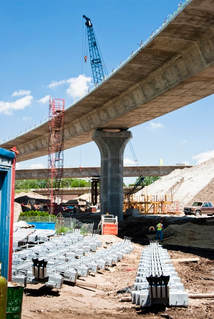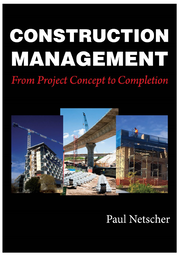 Why are government organisations (national, state, city, town and state run enterprises) often so bad at project delivery? A project isn’t just construction, it’s the complete life-cycle, from project conception, through design, planning, construction, completion, including maintenance and operation of the finished facility. At all stages of the process we see examples of spectacular failure, costing money, time and even lives. How do we define project success? For most projects success is defined by delivering a project within time and budget. Regrettably many projects fail this test. But, even a project that’s delivered on time and within budget could be a failure. Unfortunately, some projects which are seen as successful by one stakeholder are regarded a failure by another. For instance, a contractor has a successful project, they finished on time and made money, while for the owner the project was over budget and didn’t deliver value for money. A person whose house is overshadowed by a neighbouring ugly apartment building wouldn’t regard the project a success, even if the developer made a fortune building and selling the apartments. So what defines a successful project?
Reasons why many projects conceived and delivered by government organisations are a failure. There are many reasons for project failure (they don’t meet the above criteria) and these include:
Conclusion The World has many projects that are white elephants, projects that have been ill conceived, poorly planned and badly managed. Millions of dollars are wasted on inappropriate ideas, poor projects and ineptly executed projects. Unfortunately the next generation has to live with the consequences of these projects. Indeed we have to live with them! Whole communities, states and countries are hamstrung by these bad projects and the resulting debts. Politicians must be accountable. It’s time that elected officials looked beyond short term gain, greed and petty politics, rather focusing on the long term requirements of the community and country. Politicians need to take advice from honest project managers and not people and organisations that have vested interests in a particular project or outcome. They need to carefully evaluate all projects to ensure that they are the best use of public money, delivering the greatest long term benefits. They need to consider all implications of their decisions and choices, ensuring they aren’t swayed by their egos, personal agenda, or a vocal minority. They need to understand the fears and objections of all stakeholders, then not just override or ignore them, but adequately explain why these objections aren’t relevant, or adapt the project to lessen its impacts on the stakeholder. It's time for our politicians, elected officials and those in government (city, county, state or national) to stand up and take pride in their accomplishments, to be accountable for their decisions (or lack of decisions), to build a place, a community and a country that future generations will be proud of. Projects aren’t just random ideas or lines on paper, they aren’t political slogans or one-liners, they impact people and cost money. Projects require rational thought, proper planning, careful design, sound construction and expert delivery – but even more important, the project process doesn’t stop there, the completed facility has to be managed, operated and maintained, ensuring that it continues to deliver benefits safely for many years to come. Why are there so many bad government projects? Why do elected officials frequently embark on ill-conceived projects or make poor decisions? Do we have to accept bad projects? Will you hold your politicians and elected officials accountable? A question to politicians and those in administrative power – will your projects be remembered by the next generation for the right reasons? Will your projects be successful?  This article is adapted from information in the author’s popular books: 'Successful Construction Project Management: The Practical Guide' and 'Building a Successful Construction Company: The Practical Guide' and 'Construction Project Management: Tips and Insights' 'Construction Claims: A Short Guide for Contractors' is another of Paul's useful books. Paul has recently published 'Construction Management: From Project Concept to completion'. Paul's new book: 'Build and Renovate Your Home With Your Eyes Wide Open' is for those with little construction experience who want to build or renovate a house. It's filled with tips and suggestions to help you on your way, ensuring you avoid the pitfalls of home construction projects. These books are available on Amazon and other online book stores. Paul publishes articles regularly on LinkedIn and his website. Paul writes regular articles for other websites, gives lectures, mentors, and is available for podcasts and interviews. © 2018 This article is not to be reproduced for commercial purposes without written permission from the author. construction management construction project management
0 Comments
Leave a Reply. |
Archives
June 2024
Note: We welcome genuine comments, especially comments that add additional information to the subject matter in the article. We however reserve the right to remove inappropriate comments, which includes comments that have nothing to do with the subject, comments that include inappropriate language, and comments that are an advertisement for a product or company, or which include an advertising link. Comments must be in English. We will not enter into discussion on why a particular comment was removed.
CategoriesCopyright 2016 - The attached articles cannot be reproduced for commercial purposes without the consent of the author.
The opinions expressed in the attached articles are those of the writer. It should be noted that projects are varied and different laws and restrictions apply which depend on the location of the contractor and the project. It's important that the reader uses the supplied information taking cognisance of their particular circumstances. The writer assumes no responsibility or liability for any loss of any kind arising from the reader using the information or advice contained herein. "I have what I consider some of the best books on construction management."
Books are available from: Amazon.com Amazon.co.uk takealot.com kalahari.com Amazon.in Amazon.de Amazon.fr Amazon.it Amazon.com.au Powell's Fishpond uread bokus Amazon.ca Amazon.es Other retail stores Available in paperback or on Kindle "28 YEARS OF CONSTRUCTION PROJECT MANAGEMENT EXPERIENCE, DEVELOPING SUCCESSFUL CONSTRUCTION PROJECT MANAGERS AND BUILDING SUCCESSFUL CONSTRUCTION COMPANIES"
|





 RSS Feed
RSS Feed




